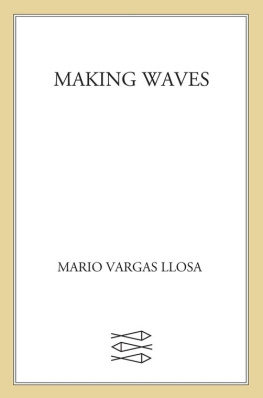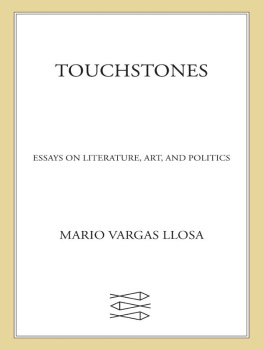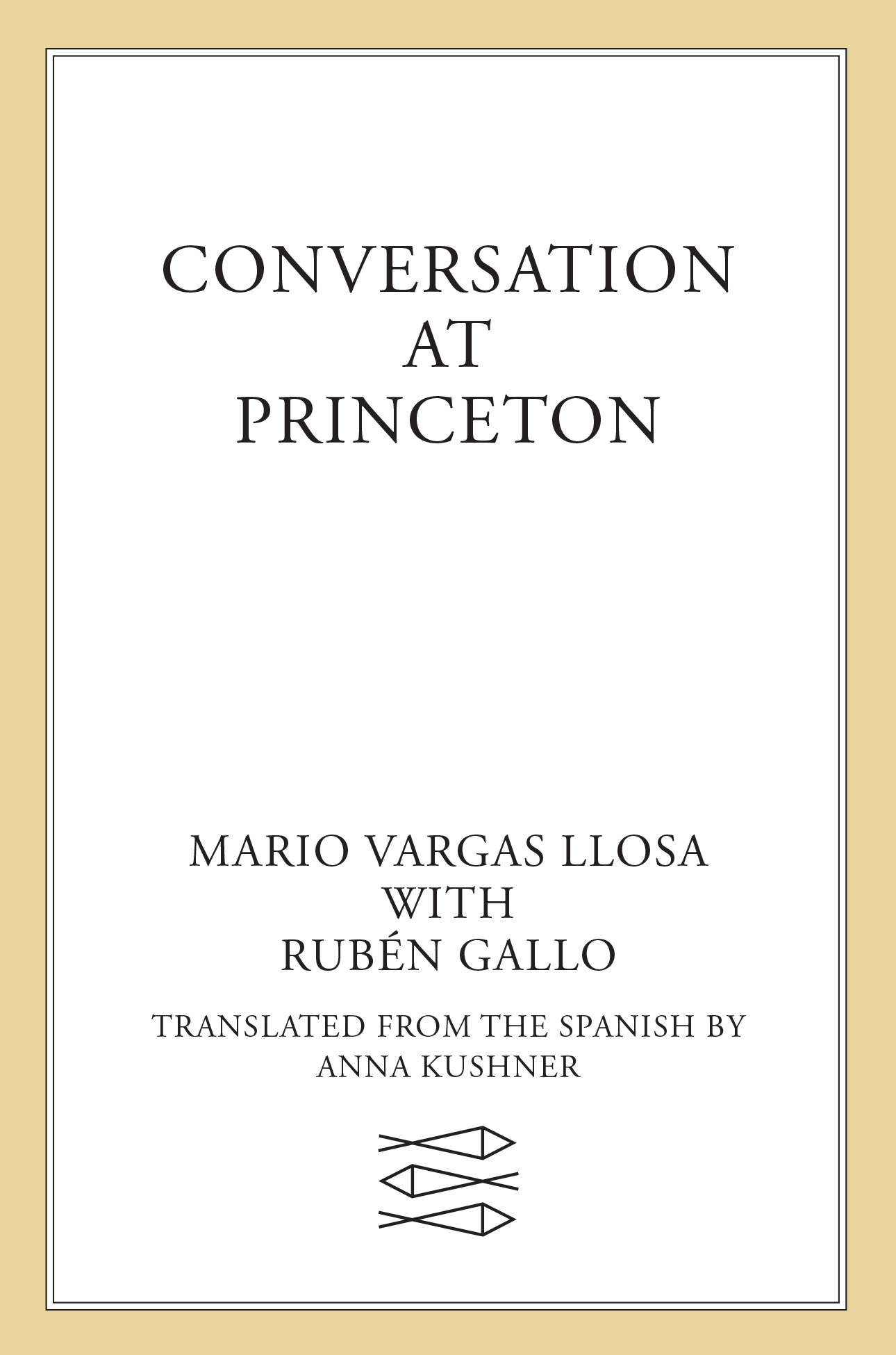Contents
Guide
Pagebreaks of the print version
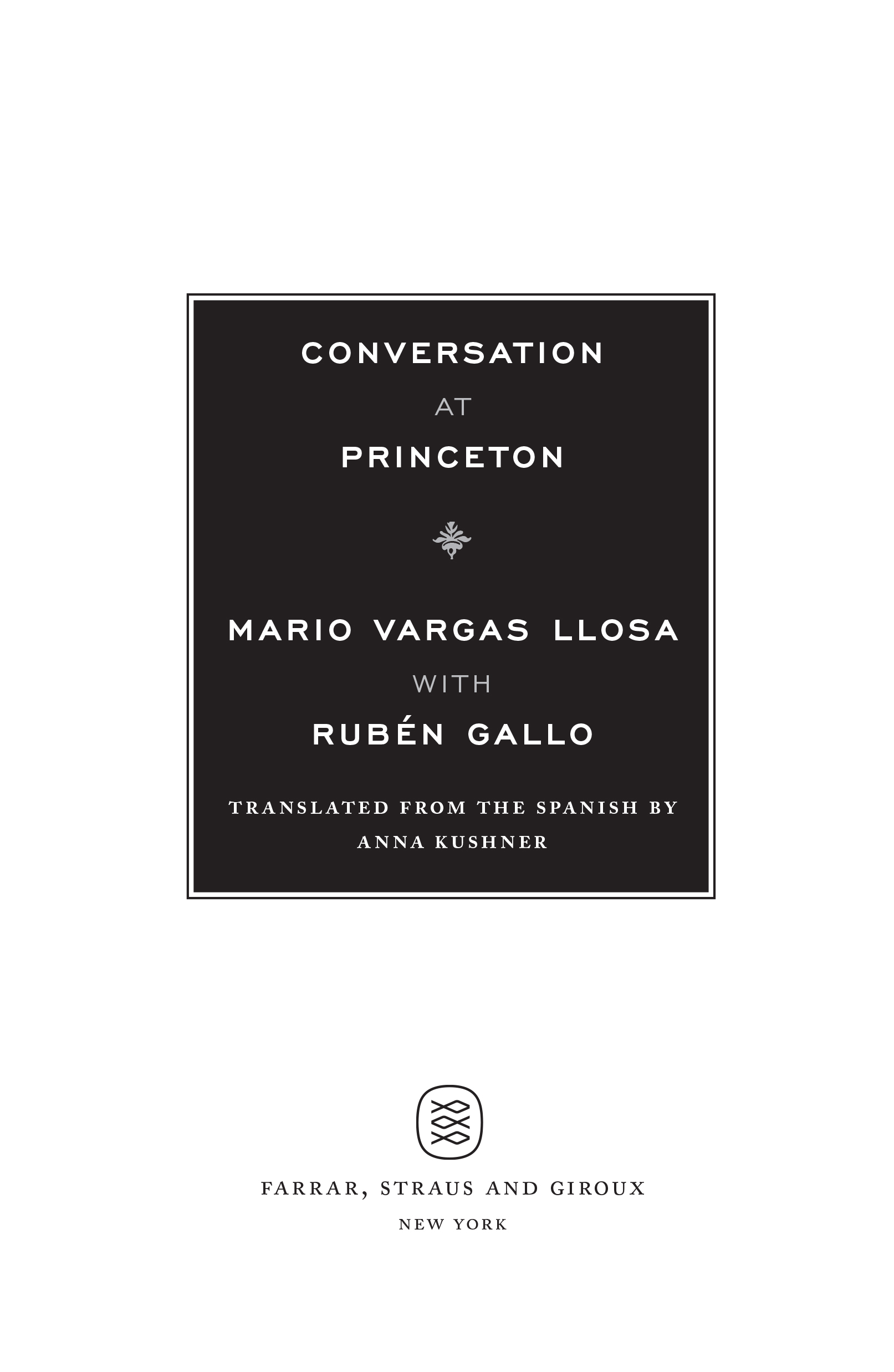
The author and publisher have provided this e-book to you for your personal use only. You may not make this e-book publicly available in any way. Copyright infringement is against the law. If you believe the copy of this e-book you are reading infringes on the authors copyright, please notify the publisher at: us.macmillanusa.com/piracy.
I met Mario Vargas Llosa shortly after I began teaching at Princeton in 2002. Peter Dougherty, the head of the universitys press, had written to invite me to a short meeting: Princeton is about to publish Marios essay about Les Misrables, and hell be coming here tomorrow to talk about his book with our sales team, he said in his message.
I attended the meeting, which was held in one of the universitys classrooms, and there was Mario, in a suit and tie, surrounded by the publishing houses sales team, men and women in their thirties, fortiesall of them Americanwith that shyness typical of the university set. They never looked you in the eye, they spoke and moved with great trepidation, as if they didnt know how to behave or what type of questions they should ask.
Mario, in contrast, projected a politeness and pleasantness that accompanied him wherever he went. He was relaxed and talked to the salespeople as if they were old friends. When he started to tell the story of his book, his voice and expression lit up the room.
Just imagine, Mario said. Victor Hugo is a man who was a virgin when he married. He had never been with a woman before. That was a very rare thing for a man of his time. He was a virgin!
The agents discomfort increased considerably. They were taking notes in booklets full of lined yellow paper and were doing everything possible not to look at Mario as he spoke.
But then, Mario continued, something unexpected happened. On their wedding night, Victor Hugo enjoyed that new experience so much that he made love to his wife seven times.
The sales agents kept their eyes glued to their notes and wrote more quickly.
Seven times. Not once or twice, but seven. Seven times in just one night. Can you imagine the amount of energy one needs for that? And he was no longer a young man. Seven times!
The sales agents blushed as they kept speedily taking notes. One woman went so red in the face that I feared she would explode.
When Mario finished relaying the life of Victor Hugohis marriage, his love stories, his political problems, his exile on the Channel Islandsthe director announced there were a few minutes left for questions.
Following a long silence, the woman who had become red and now returned to a less violent color asked, How would you classify that book? Biography or essay? Its very important to specify so we can determine its placement in bookstores.
While she asked this, I looked at her and remembered Marios words, Seven times! Seven times!
Mario gave her an answer that seemed to calm her down, and she carefully recorded it in her yellow notebook.
Shortly after, Shirley Tilghman, the universitys president, named me the director of the Latin American Studies program. I accepted, and my first project was to invite Mario to spend a semester with us. He had already been a visiting professor at Princetonand at many other universities in the United States and around the worldbut he had not been back since the early 1990s, just after his presidential campaign in Peru.
At Princeton, in addition, was Marios archive. In the 1990s, the universitys library had purchased his correspondence, the drafts of his novels, and many other documents that now fill 362 boxes that hundreds of researchers from around the world have consulted.
Mario accepted the invitation and since then has spent three semesters with us as a visiting professor. On one of those visitsit was fall 2010 and the campuss trees were a fiery redhe gave a seminar on Borgess essays and another about the Latin American novel.
The semester was going along at its usual paceseminars, dinners with colleagues, trips to New York, where many of Princetons professors livewhen one October day, in the wee hours of the morning, I was awoken by ringing.
I picked up the phone half-asleep.
Good morning. Forgive me for bothering you so early. Im Mary, from Princetons Nobel Prizes office.
I hadnt managed to fully wake up. Nobel Prizes office? I didnt know such an office existed.
We urgently need to locate Mario Vargas Llosa, the womans voice told me.
I was shaken awake when I made the link between those two phrasesNobel Prize and Mario Vargas Llosabeing used in the same sentence.
I jumped out of bed, showered and dressed as quickly as I could, and five minutes later, I was on the subway, headed toward Fifty-Seventh Street, where Mario had rented an apartment just steps from Central Park.
When I got to his building, I ran into a crowd of journalists and curious onlookers, armed with TV cameras and microphones, gathered at his door.
Across the street was a florist, and I went in to buy an arrangement.
Of course, the clerk said. Whats the occasion? A birthday? A wedding?
A Nobel Prize, I replied.
I managedwith the floral arrangement in towto make my way among the hordes of journalists, take one of the elevators, and arrive at Marios apartment. The door opened and I found another small crowd there: more TV cameras, microphones, and reporters running back and forth across the apartment from one end to another. All phonesthe intercom, landlines, visitors cell phoneswere ringing at once, and there werent enough hands to answer them.
Rubn!
I heard my name called, and then there was Mario, impeccable and with an unwavering serenity in the midst of that Babylon-like ruckus.
Imagine, he said to me, the Swedish Academy got in touch before six a.m. I was reading on the sofa. Patricia took the call and went pale before giving me the phone. I got very scared when I saw her, and the first thing I thought was: Theres been a death in the family. I took the receiver and a very proper gentleman said that he was from the Swedish Academy, that Id been awarded the Nobel Prize, and that in five minutes they would publicize the news. He told me that if I wanted to talk to anyone, I should do it right then because I wouldnt be able to later. I hung up and was left thinking, here on the sofa, about what that meant. Just five minutes later, as they had warned me, the storm began. I didnt get to call anyone.
Mario, were ready to shoot, the cameraman from Televisin Espaola said.
The Nobel storm reached Princeton. A day didnt go by without journalists from all over the world showing up and walking across the universitys campus as if it were their own home, even making their way into classrooms where Mario was giving his seminar.
Luckily, Rose, the programs administrator, was an imposing Puerto Rican who, from day to night, became Marios bodyguard. El dotol Vaga Llosa is not available, she would grunt when an outsider came to the office.
Besides the inopportune visits, the offices phones rang off the hook and the fax machines reeled off page after page. The university mailman had to get a supermarket shopping cart to deliver the pounds of letters and packages that arrived daily.
The faxes and letters contained the most unrealistic requests in the world. Mario laughed like a child upon reading those outlandish entreaties, and we could hear his belly laughs from his office.


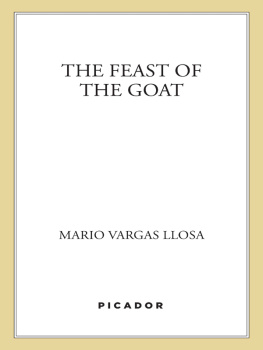
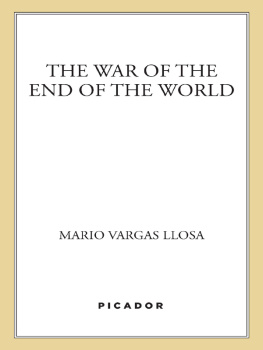

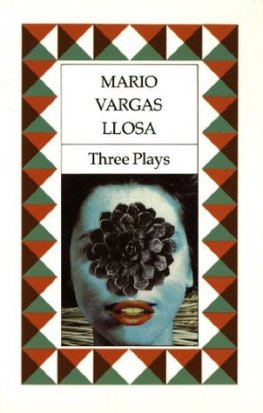
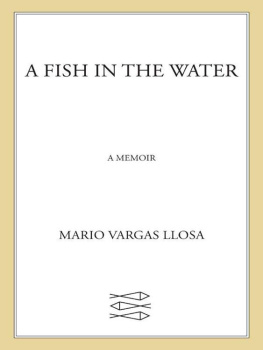
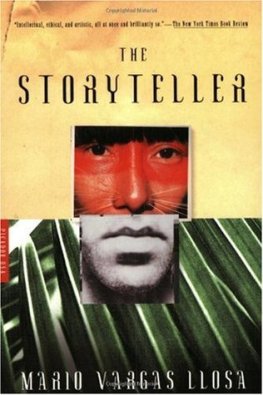
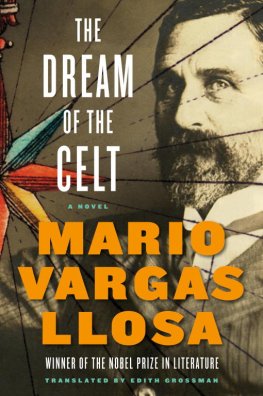
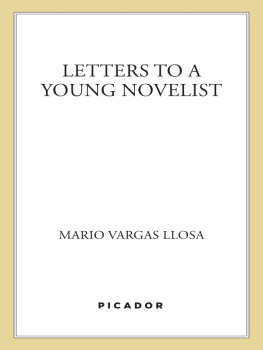
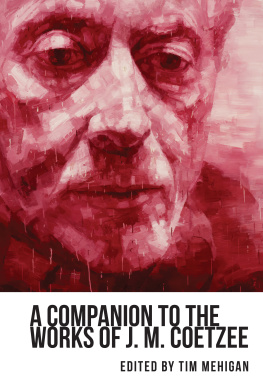
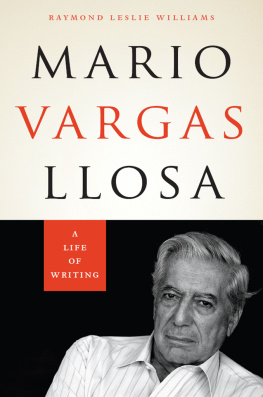
![Mario Vargas Llosa [Mario Vargas Llosa] - Captain Pantoja and the Special Service](/uploads/posts/book/142220/thumbs/mario-vargas-llosa-mario-vargas-llosa-captain.jpg)
